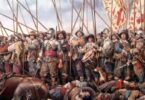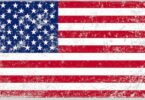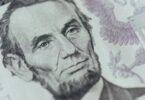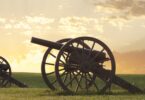Quiz on Civil Rights Movement in US History:
Who is considered the leader and spokesperson of the US Civil Rights Movement?
(a) Rosa Parks
(b) Malcolm X
(c) Martin Luther King Jr.
(d) Thurgood Marshall
Which significant legislation was a direct result of the Civil Rights Movement?
(a) Brown v. Board of Education
(b) Civil Rights Act of 1964
(c) Equal Rights Amendment
(d) Voting Rights Act of 1965
Which civil rights leader co-founded the Black Panther Party?
(a) Rosa Parks
(b) Malcolm X
(c) Martin Luther King Jr.
(d) Thurgood Marshall
What significant event occurred in 1968 that profoundly impacted the Civil Rights Movement?
(a) Assassination of Martin Luther King Jr.
(b) Birmingham Campaign
(c) Little Rock Nine
(d) March on Washington
Related: Ancient Egyptian Mythology Quiz
Which of the following has a lasting impact on American society today?
(a) The complete elimination of racial inequality.
(b) The establishment of affirmative action policies.
(c) The end of systemic racism in all aspects of society.
(d) The eradication of all forms of discrimination.
Which statement best describes the ongoing impact of the Civil Rights movement on societal attitudes and discourse?
(a) a consensus on racial issues leads to unanimous support for equality.
(b) Public awareness and dialogue around issues of race and equality have increased.
How did the non-violent strategy of the Movement contribute to its success?
(a) It relied on legal battles rather than direct action.
(b) It created a sense of unity and solidarity among activists.
Which legislation, signed into law in 1964, prohibited discrimination based on race, colour, religion, gender, or national origin?
(a) Voting Rights Act
(b) Civil Rights Act
(c) Brown v. Board of Education
(d) Fourteenth Amendment
Which landmark legislation was signed into law by President Lyndon B. Johnson in 1964, prohibiting racial segregation and discrimination?
(a) Voting Rights Act of 1965
(b) Civil Rights Act of 1964
(c) Selma to Montgomery March (1965)
(d) Freedom Rides (1961)
Which US president introduced and advocated the Civil Rights Act of 1964?
(a) John F. Kennedy
(b) Lyndon B. Johnson
(c) Richard Nixon
(d) Dwight D. Eisenhower
What was the name of the peaceful protest remembered for Martin Luther King Jr.’s famous “I Have a Dream” speech?
(a) Selma to Montgomery March
(b) Birmingham Campaign
(c) March on Washington
(d) Freedom Rides
Which event marked the beginning of the modern Civil Rights movement?
(a) Brown v. Board of Education (1954)
(b) Montgomery Bus Boycott (1955-1956)
(c) March on Washington (1963)
(d) Civil Rights Act of 1964
Related: Great Depression Multiple Choice Questions
What tactics were commonly used during the Civil Rights campaign to advocate for change?
(a) Non-violent protests, boycotts, and civil disobedience.
(b) Violent riots and armed uprisings.
(c) Political lobbying and corporate negotiations.
Which US president signed the Voting Rights Act of 1965 into law?
(a) John F. Kennedy
(b) Lyndon B. Johnson
(c) Richard Nixon
(d) Dwight D. Eisenhower
Which event in 1955 became pivotal in American Civil Rights History?
(a) Selma to Montgomery March
(b) March on Washington
(c) Greensboro Sit-ins
(d) Montgomery Bus Boycott
Who was an attorney and the first African American justice to serve on the US Supreme Court?
(a) Rosa Parks
(b) Malcolm X
(c) Martin Luther King Jr.
(d) Thurgood Marshall
Related: Questions about the Ottoman Empire
Which US president signed the Civil Rights Act of 1964 into law?
(a) John F. Kennedy
(b) Lyndon B. Johnson
(c) Richard Nixon
(d) Dwight D. Eisenhower
Which influential organization was founded by students in 1960?
(a) NAACP
(b) SCLC
(c) CORE
(d) SNCC
Which statement best summarizes the goal of the US Civil Rights Movement?
(a) To achieve equal rights and end racial segregation and discrimination.
(b) To promote economic opportunities for all Americans.
(c) To establish a socialist society in the United States.
(d) To advocate for stricter immigration policies.
Which famous civil rights leader emphasized the importance of non-violence in achieving social change?
(a) Malcolm X
(b) Stokely Carmichael
(c) Rosa Parks
(d) Martin Luther King Jr.
How did the American Civil campaign influence subsequent social justice movements?
(a) It inspired global human rights movements.
(b) It established labour rights for workers.
Who was a prominent civil rights leader and the founder of the Southern Christian Leadership Conference?
(a) Rosa Parks
(b) Malcolm X
(c) Martin Luther King Jr.
(d) Thurgood Marshall
How did the Civil Rights Movement contribute to expanding voting rights in the United States?
(a) By establishing the right to vote for all citizens aged 18 and older.
(b) By leading to the passage of the Voting Rights Act of 1965.
(c) By guaranteeing proportional representation in electoral districts.






